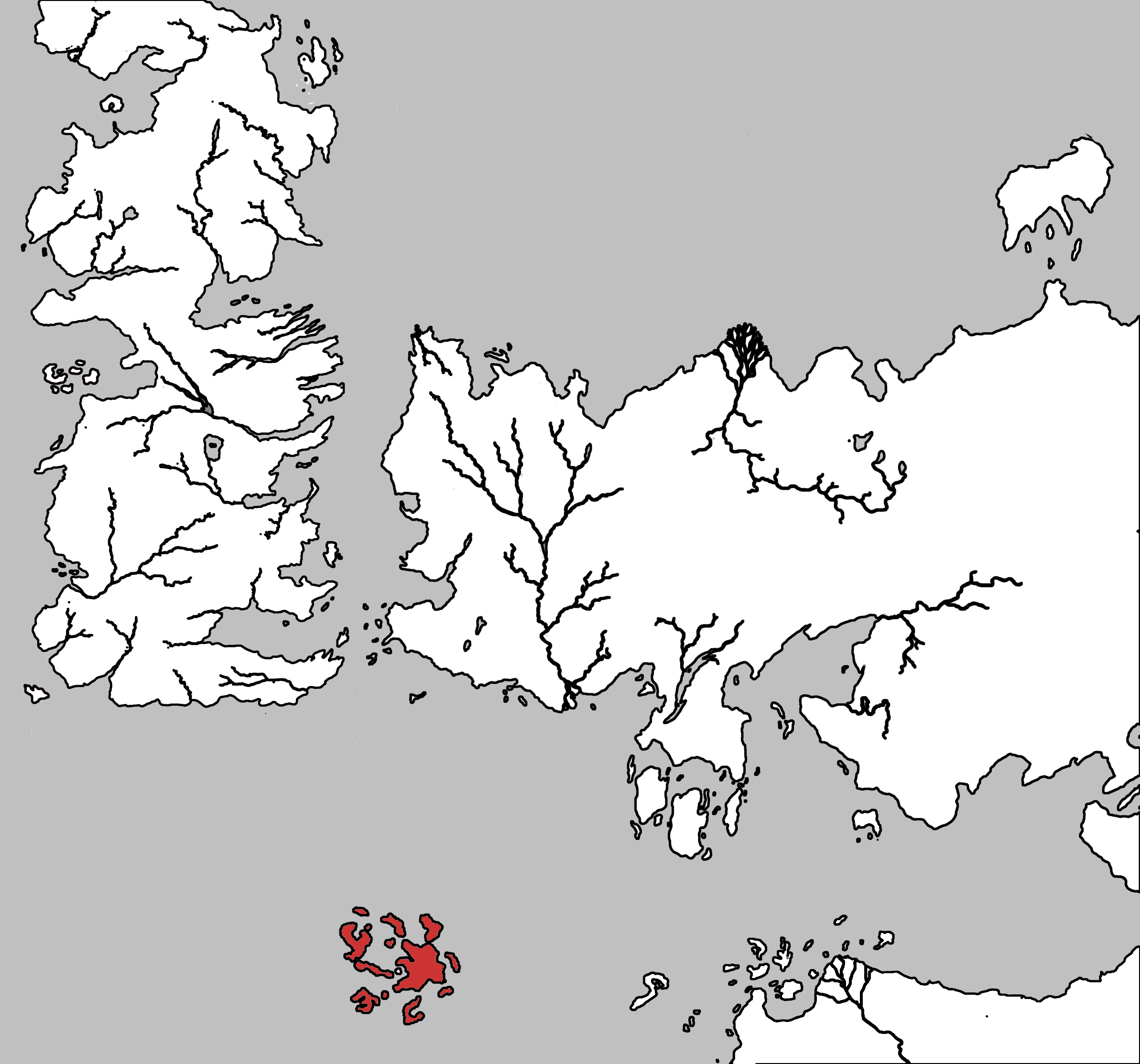

Harmund the Host was the first king of the Iron Islands known to be literate.

Third, they engage in cultural reform with a view to enhancing human capital and political alliances: “Weakness invites attack,” Qhorwyn declared. "War is bad for trade,” he said, infamously, even as he was doubling, then tripling the size of his fleets and commanding his smiths to forge more armor, swords, and axes. Second, it also plays into their political agenda - building relationships with their larger and more powerful neighbors who otherwise have no reason to do anything but go to war with the Ironborn.Īt the same time, trade also allows the Ironborn to build up their military strength: “ Qhorwyn had spent his entire reign accumulating wealth and avoiding war.

Trade has two main advantages for the Ironborn - first, it plays to their maritime strengths while potentially adding a lot to national wealth. Other lands now built larger and more formidable warships than the ironmen, but nowhere were sailors any more daring.
#SUMMER ISLANDS ASIOF FREE#
And as reaving declined, trade grew… Merchants and traders sailing from Lordsport on Pyke and the harbors of Great Wyk, Harlaw, and Orkmont spread out across the seas, calling at Lannisport, Oldtown, and the Free Cities, and returning with treasures their forebears had never dreamed of… Both reaving and trade played a part in the restoration of the pride and prowess of the islands. The Hoare kings also discouraged the practice of reaving. Second, they all engage heavily in trade: In addition, they can use their naval combat skills legitimately, by acting “as sellsails, fighting for one or another of the Free Cities in their endless trade wars.” Instead they found their prey in more distant seas, in the Basilisk Isles and the Stepstones and along the shores of the Disputed Lands.” By confining reaving to farflung regions, the Ironborn gain the benefits of piracy - namely, large amounts of essentially “free” wealth - without the downsides of being hated and mistrusted by all of their neighbors. As we learn later, “Both reaving and trade played a part in the restoration of the pride and prowess of the islands…Reaving continued as well…but the “wolves of the sea” no longer hunted close to home, for the green-land kings had grown too powerful to provoke. Notably this isn’t the same thing as banning piracy outright. Though he did not outlaw reaving, he commanded that the practice be confined to distant waters, far beyond the shores of Westeros, so as not to provoke the wroth of the Iron Throne…Quellon preferred to walk the road of peace. “The Hoare kings also discouraged the practice of reaving…Vickon Greyjoy, enthroned on Pyke on the Seastone Chair, proved a stern but cautious ruler. So what is this successful model of development? If we look at the practices of the Hoare King and the successful Greyjoy lords, there are certain common themes:įirst, they all limit and control reaving: So how do we proceed? In this case, I’m going to be taking on the role of Balon Greyjoy, but let’s say that in the wake of the disaster at the Mander, I have a Dickensian vision of the future that shakes me to the very core and causes a sudden conversion. Which of course complicates any future economic development plans, because all of your neighbors hate and mistrust you. And one of the things I’ve learned is that the Iron Islands is a region that had a successful economic development strategy - the strategy of the Hoare Kings and Vickon and Quellon Greyjoys - and pissed it away. (For previous parts in the series, see here)įor rather idiosyncratic reasons, I’ve probably written more about the economic development of the Iron Islands (before starting this series) than any other part of the Seven Kingdoms other than the Westerlands - see here, here, here, here, and here.


 0 kommentar(er)
0 kommentar(er)
